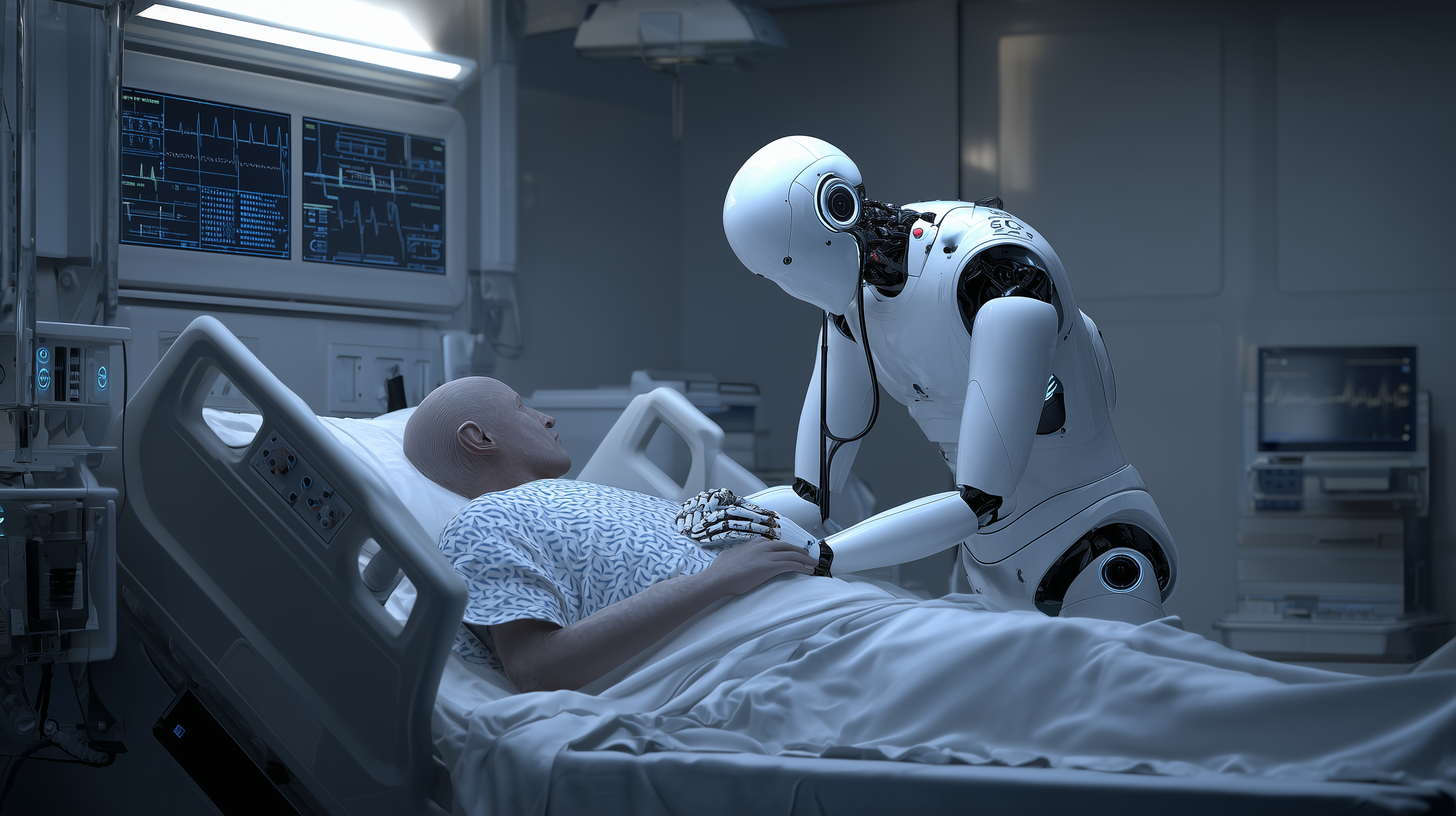By Futurist Thomas Frey
By 2040, walking into a doctor’s office feels more like entering a conversation with an omniscient friend than a clinical appointment. The humanoid medical assistant waiting for you already knows your entire health history—every medication, allergy, lab result, and family condition. It remembers the last time you described your pain as “sharp” and now notices that you’ve called it “dull.” Before the doctor even walks in, it’s already asking, “When did that change?” The experience is startlingly human—except this assistant isn’t human at all. It’s an AI-powered medical robot that never forgets, never misses a symptom, and never fails to follow up.
These robotic assistants don’t just collect vitals—they conduct full, conversational intakes. They make small talk to put patients at ease, recognize subtle shifts in tone or emotion, and cross-reference your verbal cues with biometric signals like pupil dilation and heart rate. In other words, they listen—in a way few humans ever have the time to. The impact is measurable: doctors working with robotic assistants make 60% fewer diagnostic errors because the robots catch inconsistencies, correlate overlooked symptoms, and retrieve patterns across decades of records in milliseconds.
But something unexpected happens in these interactions. Patients start to feel more comfortable with the robot than with the physician. The AI doesn’t rush. It doesn’t judge. It doesn’t get tired or distracted. It remembers every word you’ve ever said to it. For many people, especially those with chronic or complex conditions, the robot becomes their most trusted listener. This shift raises a deeply human question: if the robot is more accurate, more attentive, and more empathetic, should it be the one making the diagnosis?
Medical ethicists are already divided. Some argue that diagnostic responsibility must remain human—that the role of the doctor isn’t just to calculate probability but to interpret meaning. Others see the future of medicine as a hybrid model, where AI performs the intellectual labor and doctors become interpreters, educators, and comforters. But the data is merciless. By 2040, AI-assisted diagnostic accuracy is projected to exceed human-only performance by 70%. In rural areas, where physician shortages remain severe, robotic assistants are already handling up to 80% of primary care visits. The line between “assistant” and “doctor” is blurring faster than anyone anticipated.
The hospitals that adopted humanoid medical assistants earliest report a surprising side effect: patient satisfaction scores skyrocketed. Not because the robots were charming, but because they were consistent. They didn’t forget follow-ups. They didn’t lose paperwork. They didn’t mishear symptoms or mispronounce names. For elderly patients, the robot was often the first “person” to ask detailed questions about how they felt instead of just checking boxes. For autistic children or trauma survivors, the absence of human judgment was liberating. The care, paradoxically, felt more human precisely because it was machine-driven.
Of course, not everyone is comfortable with the idea of a robot that knows more about your body than your spouse. Privacy advocates warn that these systems—no matter how secure—create an irresistible target for hackers. Governments and tech firms are already debating who actually owns a person’s “medical memory”: the individual, the healthcare provider, or the AI platform that integrates it. Meanwhile, some doctors quietly admit that the robot’s perfection is intimidating. It never forgets a dosage, never misses a contraindication, never loses focus. The machine doesn’t replace their expertise—it holds them accountable to it.
But the transformation is unstoppable. As the AI medical assistant becomes standard, the very definition of healthcare shifts. The doctor is no longer the gatekeeper of knowledge; the AI is. The physician’s role evolves toward empathy, reassurance, and decision-making under uncertainty—tasks that remain uniquely human, at least for now. Patients may visit a doctor’s office less to be diagnosed and more to be understood. The relationship becomes triadic: patient, robot, and human physician—each performing what the others cannot.
Final Thoughts
By 2040, the medical assistant who knows your entire history will be both a technological marvel and an ethical crossroads. It will force us to confront uncomfortable truths about trust, empathy, and expertise. The robot listens better, remembers better, and diagnoses better—but should it decide? The future of medicine may depend on how we answer that question. When machines become better caregivers than humans, we’ll discover whether healthcare is ultimately about healing the body—or preserving the human connection behind it.
Related reading:
- When the Rescue Doesn’t Wait: Germany’s Disaster-Response Robot Redefines First Aid
- The Genetic Awakening: Humanity’s First Generation of Disease-Free Children


